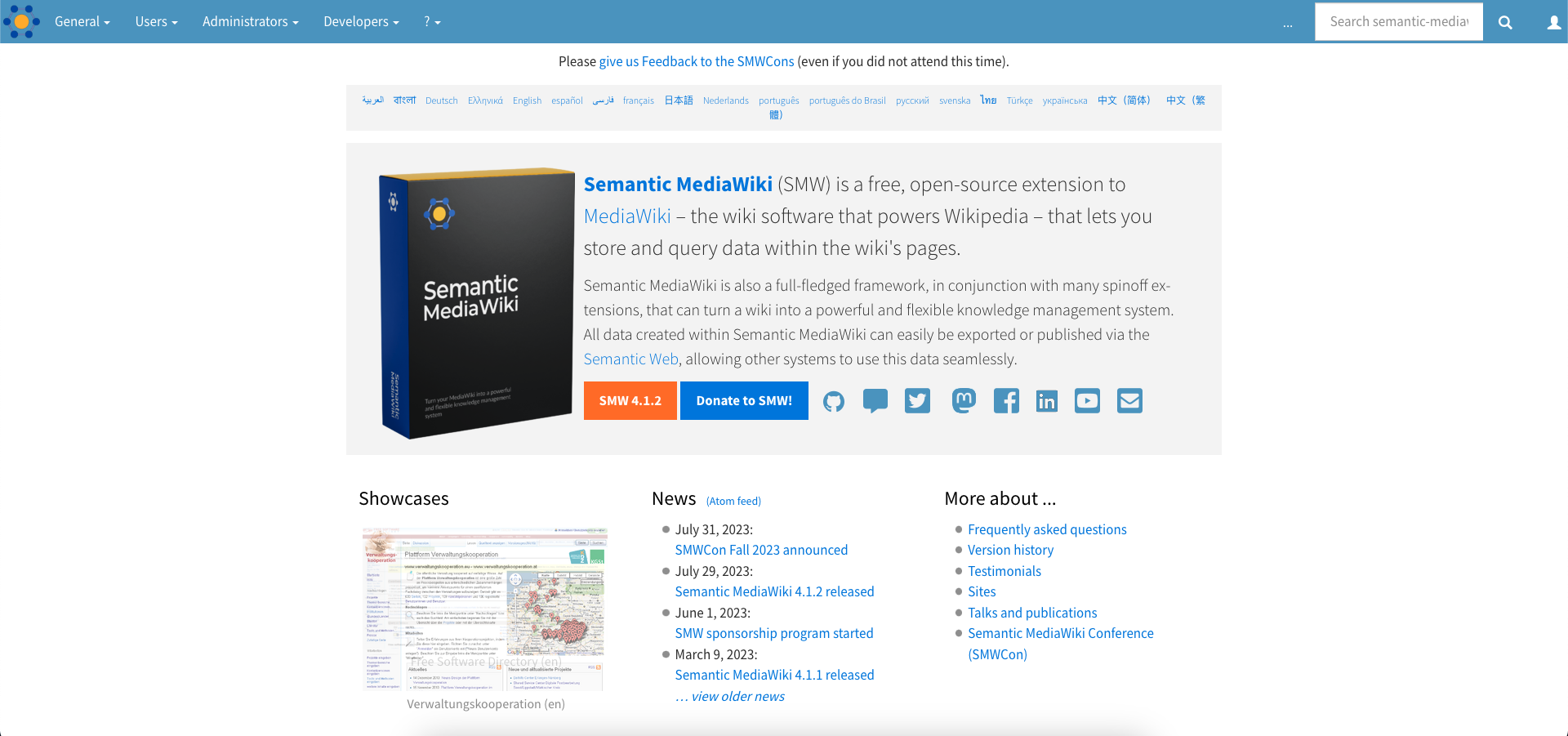MediaWiki as a Knowledge Base
Out-of-the-box
MediaWiki, renowned for its versatility and adaptability, is commonly employed as a Knowledge Base.
Users find creating, editing, and organizing content within MediaWiki effortless. As a wiki platform, MediaWiki seamlessly ensures unstructured information connectivity by linking wiki pages inherently.
Given its web-based nature, MediaWiki easily integrates links to diverse resources directly within wiki pages.
One notable advantage of MediaWiki is its capacity to empower editors and users to pinpoint gaps in knowledge,
identifying areas where information may be incomplete or insufficient ("red links").
MediaWiki provides uncomplicated categorization features by default, empowering users to efficiently organize and filter information based on categories.
Built-in features
An inherent feature of MediaWiki is its capability to automatically create and update the full-text index of its content.
The platform's built-in version control allows for the comprehensive review of all historical revisions of a page, with the ability to revert to any desired revision.
A standout feature of MediaWiki is transclusion, a brilliant functionality enabling the reuse of content segments and the automatic propagation of changes across all pages incorporating the modified content.
Moreover, MediaWiki allows content moderation, verification, and approval by experts or experienced editors, ensuring the quality of knowledge within the platform.
This feature is instrumental in maintaining the accuracy and reliability of the information housed within the knowledge base.
Creating Complex Ontologies
To elevate knowledge management to a more sophisticated level, MediaWiki supports the integration of the SemanticMediaWiki extension.
This extension empowers users to create complex ontologies, facilitating a deeper and more meaningful understanding of the relationships between different pieces of information.
Data Processing
MediaWiki's SemanticResultFormats extension empowers users to query and output data in various formats. Together with SemanticMediaWiki, it adds parameterized search ability to the platform.
Taking knowledge management a step further, adding the PageForms extension allows for the automation and validation of input, ensuring data accuracy and consistency.
Data Exchange
SemanticMediaWiki ensures information connectivity by seamlessly linking pages and data. The DataTransfer extension further enhances the platform, enabling the seamless import and export of data and facilitating knowledge transfer between different systems.
MediaWiki's unique capability to connect to external data sources further expands its utility. Organizations can leverage data from external repositories, databases, or APIs, enriching their knowledge base with up-to-date and relevant information. A notable extension facilitating this capability is ExternalData.
Advanced Search
To enhance search functionalities, the CirrusSearch extension can be integrated,
which stores the index in the Elasticsearch backend. This integration facilitates fuzzy searches through partial matches,
permits the application of masks, and enables distinct searches within the wiki page source and its rendered content.
Accessing the Knowledge
MediaWiki's core design principle is the seamless sharing of knowledge. Its strength in regulating user access rights and levels has yet to be its standout feature. In its native state, the platform lacks robust mechanisms for finely regulating or splitting user access rights, posing challenges in scenarios where information sensitivity demands stringent controls.
To address this limitation, user permission extensions augment MediaWiki's core capabilities, catering to the nuanced needs of organizational knowledge management. Given the variety of available extensions, careful consideration is necessary to choose the one that best suits the particular use case.



